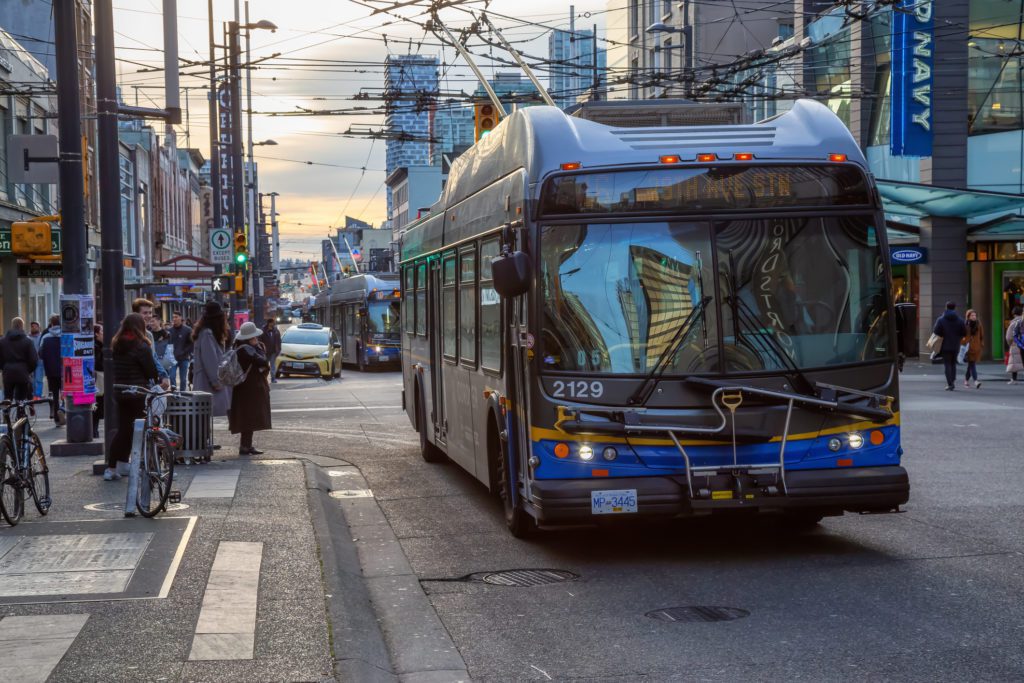ENVIRONMENTAL DEFENCE, ÉQUITERRE
Toronto | Traditional territories of the Mississaugas of the Credit, the Anishinaabeg, the Haudenosaunee, and the Wendat – Environmental Defence and Équiterre applaud Minister of Environment and Climate Change, Steven Guilbeault, for finalizing Canada’s Electric Vehicle Availability Standard, which will require automakers to gradually shift to 100 per cent zero-emission vehicle (ZEV) sales by 2035. This is a crucial policy that will help put Canada on the path to net zero emissions.
“The Electric Vehicle Availability Standard is a holiday gift to the planet. Canada will now join the ranks of leading jurisdictions such as the European Union, California, Quebec and British Columbia, in phasing out the sale of new gasoline cars at the pace required by global net zero objectives. This regulation will also help address affordability challenges by ensuring that the budget electric vehicle (EV) models coming to market aren’t just available overseas, but are readily available in Canada too. Increasing overall zero-emission vehicle supply will cut order wait times, bring more affordable clean cars to the used vehicle market, and send a powerful signal to automakers to invest in research and development to lower electric vehicle prices. With significant taxpayer subsidies going to EV battery plants in Canada, this regulation ensures that Canadians will be the first in line to buy the cars we are paying to help make,” said Nate Wallace, Clean Transportation Program Manager, Environmental Defence.
“Canada needs its own independent Electric Vehicle Availability Standard because we have more ambitious ZEV adoption targets than the United States. The flawed US tailpipe rules have encouraged automakers to shift vehicle sales to increasingly larger and heavier gasoline SUVs and trucks and have significantly undermined the emissions benefits from greater fuel economy. This regulation ensures that automakers take responsibility for their impact on the planet and gives everyone across Canada greater access to zero-emission vehicles, regardless of which province they live in,” said Anne-Catherine Pilon, Transportation and mobility analyst, Équiterre.
Higher expectations
Environmental Defence and Équiterre also acknowledge that there continues to be room for improvement. We continue to underline that ZEV sales targets could be higher in line with reference jurisdictions and the three-year grace period given to automakers before enforcement is too long. Given current market trends, Canada is already likely to sail past the 20 per cent ZEV sales target in 2026, and the new inclusion of ‘early action credits’ was completely unnecessary and serves only to weaken the regulation in the early years. We were encouraged by the added requirements for eligibility for ‘ZEV-related activities’ though would have preferred if this flexibility mechanism were eliminated entirely. We are also very encouraged that overall, core elements of the regulation were not weakened by the introduction of things such as credit multipliers.
Looking to the future, we hope that this progress on zero-emission vehicles also leads to similar ambition in reducing emissions through shifting travel to public and active transportation. While this regulation will play an important role in accelerating the transition to electric vehicles, it is still important to remember that the decarbonization of the transportation sector must also focus on the importance of reducing the number and the size of vehicles on our roads.
For more information:
English: https://environmentaldefence.ca/report/briefing-zero-emission-vehicle-sales-regulation/
French: https://www.equiterre.org/fr/ressources/315-pour-reellement-en-finir-avec-les-vehicules-a-essence
ABOUT ENVIRONMENTAL DEFENCE (environmentaldefence.ca): Environmental Defence is a leading Canadian environmental advocacy organization that works with government, industry and individuals to defend clean water, a safe climate and healthy communities.
ABOUT ÉQUITERRE (equiterre.org): Équiterre seeks to make the necessary collective transitions toward an equitable and environmentally sound future more tangible, accessible, and inspiring. Since 1993, Équiterre has been helping to find solutions, transform social norms, and encourage ambitious public policies through research, support, education, mobilization, and awareness-building initiatives. This progress is helping to establish new principles for how we feed ourselves, how we get around, and how we produce and consume, that are designed for our communities, respectful of our ecosystems, in line with social justice, and of course, low in carbon.
– 30 –
For more information or to request an interview, please contact:
English: Allen Braude, Environmental Defence, media@environmentaldefence.ca
French: Anthony Côté-Leduc, Équiterre, acoteleduc@equiterre.org






